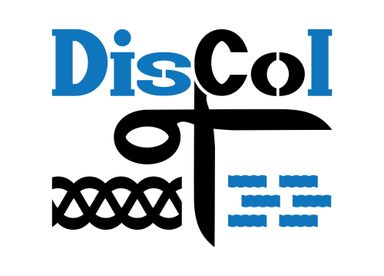Research objectives
Fibrosis of internal organs is a chronic condition caused by abnormal tissue repair. During fibrosis the homeostasis of extracellular matrix, the dynamic three-dimensional scaffold that surrounds cells in tissues, is disturbed. Over-accumulation of extracellular matrix components, including collagen I, leads to replacement of functional tissue with stiff and de-organised extracellular matrix, followed by impairment of tissue function and consequently organ failure. Chronic kidney disease, heart failure and liver diseases are among the most common fibrotic disorders. Gaining insight into the mechanisms underlying fibrosis may contribute to the improvement of lives of patients with these chronic diseases.
The specific research objectives include:
1. Study type I collagen degradation in chronic diseases from different angles, covering all steps in the gene expression process i.e., transcription, translation, post-translational modifications and protein degradation (peptides/ degradome).
2. Generate a high-dimensional molecular map/ model of fibrosis in chronic diseases, focusing on type I collagen degradation, using bioinformatics tools, to close the knowledge gap in our understanding of mechanisms underlying fibrotic chronic diseases.
3. Define type I collagen-based biomarkers for non-invasive diagnosis of fibrosis.
Disco-I approach
Until now the accumulation of the extracellular matrix during fibrosis was considered to be a result of enhanced extracellular matrix production. The aim of DisCo-I is to change our view on the driving force for fibrosis, by studying fibrosis as a result of attenuated extracellular matrix degradation.

Innovation
DisCo-I is a ground-breaking project which will for the first time:
- Study fibrosis in a systemic way. The project will investigate and cross-compare the molecular mechanisms of fibrosis in three major chronic diseases: chronic kidney disease, heart failure and liver disease.
- Investigate the innovative hypothesis that the impairment of collagen I degradation leads to fibrosis.
The project will generate the currently missing fundamental knowledge on the molecular physiology and pathophysiology of collagen I degradation enabling:
- The definition of biomarkers based on disease pathophysiology.
- Completely novel approaches towards therapies.
Research projects
Project 1
Project title: COL1 degradation fingerprint in urine
Host institution: Mosaiques Diagnostics GmbH (MOS), Germany
Enrolment in Doctoral degree: Universitätsklinikum RWTH Aachen (UKA1), Germany.
Non-academic / Academic supervisors: Prof. Harald Mischak, Dr. Agnieszka Latosinska (MOS) / Prof. Vera Jankowski (UKA1)
Project 2
Project title: Investigation of COL1 synthesis and degradation fingerprint in serum and development of novel Protein Fingerprint biomarker assays for COL1 degradation
Host institution: Nordic Bioscience A/S (NB), Denmark
Enrolment in Doctoral degree: University of Copenhagen (KU), Denmark
Non-academic / Academic supervisors: Dr Federica Genovese (NB) / Prof Michael Jonathan Davies (KU)
Project 3
Project title: Fibrosis and COL1 degradation in SNX rats
Host institution: RD Nephrologie SAS (RDN), France
Enrolment in Doctoral degree: Universite Paul Sabatier Toulouse III (UT3), France.
Non-academic / Academic supervisors: Prof Angel Argilés and Dr Nathalie Gayrard (RDN) / Dr Colette Denis (UT3) and Dr Jean Sébastien Saulnier-Blache (INSERM)
Project 4
Project title: Tissue proteome signature of chronic diseases with fibrotic component
Host institution: Biomedical Research Foundation, Academy of Athens (BRFFA) & Nordic Bioscience A/S (NB), Denmark
Enrolment in Doctoral degree: National and Kapodistrian University of Athens (NKUA), Greece
Non-academic / Academic supervisors: Dr Federica Genovese (NB) / Dr Antonia Vlahou (BRFAA) and Dr Maria Roubelakis (NKUA)
Project 5
Project title: COL1 degradation in animal models
Host institution: Institut National de la Santé et de la Recherche Médicale (INSERM), France & RD Nephrologie SAS (RDN), France
Enrolment in Doctoral degree: Universite Paul Sabatier Toulouse III (UT3), Toulouse, France
Non-academic / Academic supervisors: Prof Angel Argilés / Dr Colette Denis (UT3) and Dr Joost Peter Schanstra (INSERM), Dr Jean Sébastien Saulnier-Blache (INSERM)
Project 6
Project title: Molecular mechanism of COL1 degradation
Host institution: Mosaiques Diagnostics GmbH (MOS), Germany
Enrolment in Doctoral degree: Universitaetsklinikum RWTH Aachen (UKA1), Germany
Non-academic / Academic supervisors: Prof. Harald Mischak (MOS), Dr. Agnieszka Latosinska / Prof. Joachim Jankowski (UKA1)
Training objectives
1. Training and education of doctoral candidates in clinical/ epidemiological aspects of chronic disease, state-of-the-art technologies, analysis of omics data, statistics, bioinformatics, and animal models to characterise the disease molecular landscape, interpret the changes in the context of biology and verify their relevance in disease models.
2. Exposure of doctoral candidates to academic and non-academic (industry) sector to gain experience and knowledge on the translation of basic research from bench to bedside to address emerging clinical needs.
3. Comprehensive training of doctoral candidates in transferable skills and competences required to initiate a successful research career, thus increasing the doctoral candidates’ competitiveness and employability.
For each doctoral candidate, a personalised training programme will be implemented, covering both local and international, network-wide activities, as briefly summarised below.
Local training:
- Enrolment in PhD programmes.
- Training at the beneficiary premises, with activities specifically designed for the individual projects.
- Participation in international webinars, and journal club meetings.
International, network training activities:
- Multi-disciplinary workshops, focused on clinical aspects of chronic diseases, fibrosis, omics and its application to address clinical needs, and bioinformatics.
- Hands-training courses on programming and statistics.
- Training courses on transferable skills and competences.
- Secondments to partner laboratories, to maximize training in the relevant areas toward reaching the research objective.
- Participation in high-level international conferences and presentation of their work as posters and/or oral presentations.

The DisCo-I project has received funding from the European Union’s Horizon Europe Marie Skłodowska-Curie Actions Doctoral Networks - Industrial Doctorates Programme (HORIZON – MSCA – 2021 – DN-ID) under grant agreement No 101072828.
Funded by the European Union. Views and opinions expressed are however those of the author(s) only and do not necessarily reflect those of the European Union. Neither the European Union nor the granting authority can be held responsible for them.
